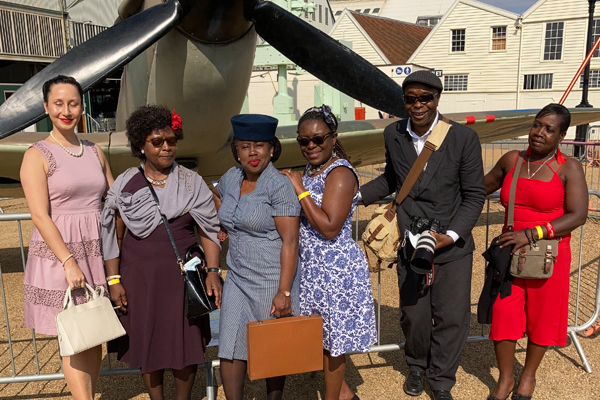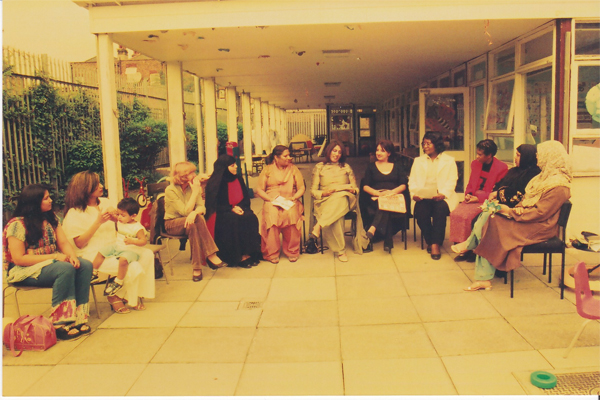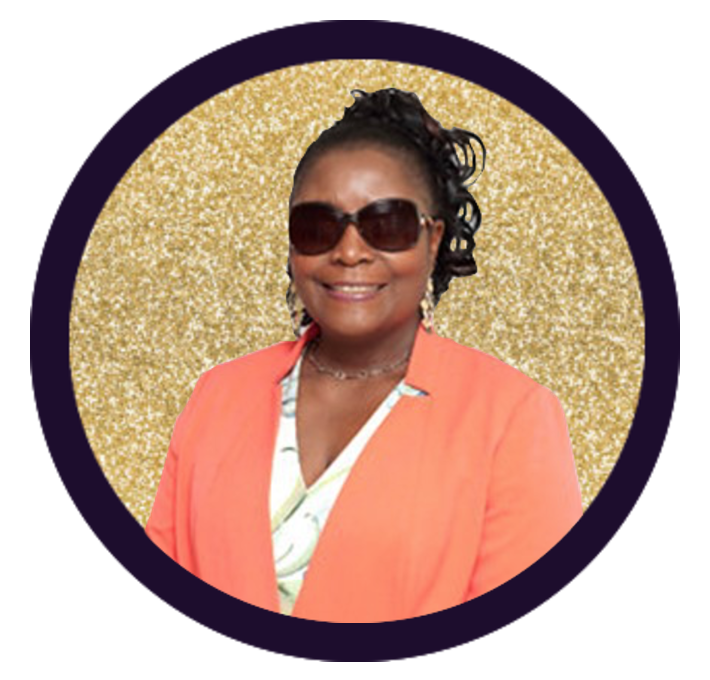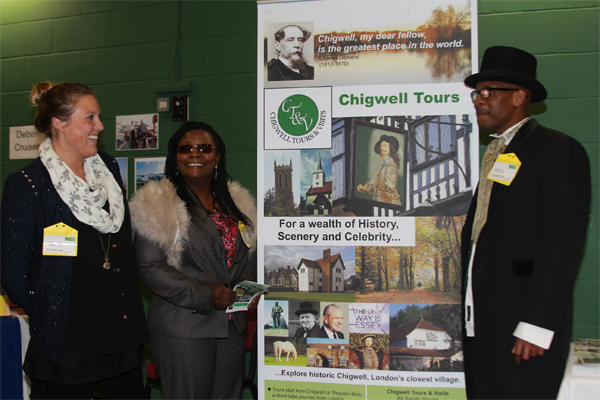As we mark the beginning of Black History Month in the UK, community activist, business leader and CEO of Chigwell Tours and Concept Consulting RMT, Salome Ahenkora, shares some of the challenges she faced as a Black entrepreneur in the UK; and the importance of providing Black-owned businesses with real support to help them thrive.
Not only has she successfully grown Chigwell Tours from a local operator to a national one, the diversity champion and Black British Award finalist also mentors and inspires women, young mothers and youth to achieve their dreams. She shares her corporate and entrepreneurial journey, as well as views on inclusion, with Fair Play Talks.
FAIR PLAY TALKS: Can you briefly tell us about your career and business journey to date?
Salome Ahenkora: In terms of my career, I started life as a teacher in the East End of London. However, I felt that there was more to life than that. I remember growing up in Nottingham and Matlock, where I trained as a teacher, being avidly interested in hospitality, and dreamt that one day I would be a manager and run the Savoy Hotel where I worked during the summer holidays. I didn’t know how because back then my parents, newly arrived in the UK from Ghana, worked in the public sector; and believed that I would also follow them. Business was never discussed in the family, but education and service were.
After teaching, I spent 12 years working for Islington and Camden councils within the chief executive departments. Both positions at senior and principal officer levels, involved policy development, awarding and managing grant budgets of more than £15 million at that time. I attended committee meetings, worked with politicians, councillors, the voluntary sectors and advocacy groups. I became aware of the negative impact of institutional racism and gender inequality. Black organisations were marginalised and accessing resources was a problem. Women and gender issues were sidelined.
In 1990, due to my community activism and experience in local government, I was appointed to the Home Office, Race Advisory Board. In 1992, my international experience started when I moved to Ghana, and worked for the Centre for the development of people (CEDEP); a national NGO. I eventually worked for the World Bank in Ghana, as a local consultant. Addressing poverty issues at the macro policy levels and working with bilateral organisations, were all part of my role. This created the platform for me to attend the World Conference of Women in Beijing in 1995, contributing to debates on gender strategies for women’s empowerment through business and income generating projects. Little did I know that these were pointers for my own future business.
After my return from Ghana, the UK financial crisis of 2008 saw the management consultancy business that I had established and ran with my husband successfully for eight years, lose valuable contracts. So, combining family life, working on the Woman to Woman programme for Voice of Africa Radio, and researching the potential for a tour company led to Chigwell Tours being launched in 2012, just before the London Olympics.
Starting with just one tour in 2012, we now provide several tour experiences across England, with many tours in Chigwell, Essex, London and Ghana. We have a good track record in providing bespoke, customised tour packages. My future career path beyond Chigwell Tours, will include integrating my public, private and international experience into professional a mentoring and coaching capacity; and engaging with boards, Black businesses as well as contributing to the work of international agencies.

FAIR PLAY TALKS: What challenges did you face along the way?
Salome Ahenkora: Operating an inbound tour business often associated the mainstream English public; and competing on a level playing field with major attractions invariably means you are always alone and the only Black-owned business at major conferences and exhibitions. The public always expect you to be English and White. The challenge is that without role models, I need to set the standards necessary for the company to get a look in and be accepted as a good business.
So part of the challenge is having the confidence to speak up to say: this is what I’m doing, and this is the value I bring. I have always pushed for inclusion in the workplace; but my attitude has always been: you have to be a pioneer; and you have to let what you do speak for you.
The seasonal nature of the tour business brings its own challenge, as you need to have access to sufficient finance from banks at critical times to sustain the business.
FAIR PLAY TALKS: Are there specific challenges Black entrepreneurs face on their journey to the top that White/other groups don’t?
Salome Ahenkora: Definitely. Access to resources, finance and established networks of support, individual and experienced mentors across the sectors willing to share their good, bad and gritty experiences with you as a Black business owner; and point you to helpful contacts is a major barrier for many Black businesses.
Access to money is important at times; but sometimes understanding institutions and unspoken cultural barriers and hidden internal policies don’t make for a level playing field. I faced these earlier in my career; so to survive, you do need to reach out to those with similar values to yourself. Appreciate and have an understanding of your unique contribution to business. The institutional barriers and structures for progression are blockers for many.
Another challenge is the gate keeper syndrome – when you meet all the criteria; and you possess the intellectual know-how, but those around you deliberately blank you or fail to appreciate the cultural dimension or contribution you bring. Another barrier many Black professionals working in institutions and businesses face is the narrative that often implies that any good business ideas that come from Black colleagues are simply altered, and the credit is given to White counterparts. This is a very emotional unsettling experience if you have to endure this in organisations where you are employed, especially at management level. This barrier is alive and well in many businesses, and organisations in 2021 are blighting Black entrepreneurial aspirations.
In my own experience, accessing good supply chains which deliver to your high standards can also be a frustrating experience; especially when those supply chains are dominated by White men. Their intended or unintended actions and policies can impact on your business; and it’s sometimes impossible to penetrate those barriers.
FAIR PLAY TALKS: Are you involved in promoting Black talent/race equality or other diversity initiatives?
Salome Ahenkora: During 2010-2012, when I became a member of LOCOC’s Black Leadership Management team to advise on getting young Black people involved in the London Olympics, I set up the Inspire Action Foundation charity; a mentoring organisation for 10 to 15-year-olds for young Black people on the Olympic Hero’s project. We focused on the participation and inclusion in the games for young Black people. Our project workshops around the Olympics enabled young people to research into the lives of Olympians and their connections with their communities, families and nations. From this, young people met athletes, media personalities and created an exhibition of their work.
I have dedicated my 2015 Inspirational Woman Award to providing mentoring, work experience and internships for pupil from local schools and graduates from UEL, UCL and St Mary’s University. I have been a school governor, and a member of Women in Public Life in Waltham Forest, London. Mentoring and supporting women and young mothers through mentoring to find their niche in life, is a fabulous experience.

FAIR PLAY TALKS: How important are awards and organisations like The BBBAwards in the UK to promote Black/minority talent and Black role models?
Salome Ahenkora: It’s significant and important. Anything that changes the mainstream narrative about Black business achievements and how ordinary Black people are making things happen, by contributing to their communities and society at large, is great. It can be aspirational, especially for generation X and Z. The BBBAwards provides the platform so that this can happen and raise our profiles; and this is necessary in the awards field. Personally, it is phenomenally important for our business that another platform in the mainstream showcases our tours and services.
Secondly, having been awarded ”Best Bespoke Tour Operator Essex 2021” by Luxlife Magazine in March 2021, the BBBA Awards are an affirmation that Chigwell Tours and Visits, as a business, is moving in the right direction. This award provides valuable support and opportunity to connect with other finalists; enabling us to network as we would have never otherwise mixed in the same circles and met other fantastic professionals. This creates opportunity for peer mentoring, business support and friendship building.
FAIR PLAY TALKS: How can organisations promote equality and fairness to enhance belonging and inclusion that will resonate with all groups?
Salome Ahenkora: To an extent, yes. Inclusion is a way of life; the way we see society and our individual contribution to what we do. It is more than policy. Inclusion is about diversity, language, dress codes, informal networks and cultural acceptance. I think it can be done. However, it needs to come from both the bottom up and top down; and be structured into the value, ethos and the life and soul and operations of the business. Everyone working there, including its supply chains, need to embrace this way of working. There has to be a persistent commitment to maintain this, and sanctions applied. Individual responsibility for accepting cultural diversity and respect for everyone’s contribution must be understood and applied.
FAIR PLAY TALKS: Can the Black and other minority communities be doing more to promote race equity at home and in the community?
Salome Ahenkora: The Black community is unbelievably talented. We have visions; we have entrepreneurs, we have lawyers, we have everything! However, we can always be doing more. Some are doing well by starting programmes that promote inclusion and diversity. There are many women organisations that provide platforms for women who have entrepreneurial aspirations. So, there are many things that the Black community can be doing; but accessing the resources to do so can be difficult. As a diverse community, we need to change the negative narrative the mainstream often applies to us; and instead promote our real contribution to this nation’s wealth creation.
FAIR PLAY TALKS: What advice do you have for young Black/minority youth to encourage them to pursue their dream job or business venture?
Salome Ahenkora: In many respects, the education, education, education, mantra is right. Education comes in many forms; but a good early year’s educational start in life provides a good springboard to one’s future. This comes in many, many forms. Formal education is fantastic, But informal lifelong learning is important. Investing in oneself is really key; and investment in oneself is about giving space to your vision, your aspirations and working hard. But at the same time, you have to be prepared to take some risks. You need to be an outside-the-box thinker.
One of my favourite quotes is from Eleanor Roosevelt: “The future belongs to those who believe in the beauty of their dreams.” You have to have a dream and you have to believe in it. It might take you a lifetime to achieve your dream, but it’s important that you have a vision. You also have to bounce back up off the ground and just move on with it. That’s what we’ve been able to do in our business. It has not been easy, but you know there are peaks and troughs in life. And that’s what makes life so special.

MORE ABOUT SALOME AHENKORA
Salome Ahenkora is an award-winning entrepreneur, leader and manager with over 30 years of experience; in both the UK’s private and public sectors, as well as internationally. Launched in 2012, Chigwell Tours has grown from a local tour operator to a national one; and even arranges tours to Ghana. Thanks to her early career in teaching, she has also developed graduate internships programmes for university students; including UEL, UCL, Kent and St Marys Twickenham. She is also an inspiring mentor for women and students.
CELEBRATING INSPIRING BLACK ROLE MODELS
The winners of this year’s Black British Business Awards will be revealed at a virtual ceremony on 7 October 2021.
Click here to check out the full list of this year’s Brilliant BBBAwards Finalists.







































